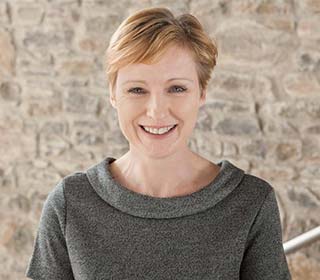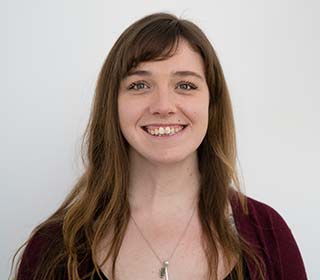MPsy Master of Psychotherapy and Counselling
Train to become a skilled, safe, evidence-based, and reflective psychotherapist and counsellor. This four-year integrated Master's degree is for undergraduate entry and combines theory, research, and practice with professional training in psychotherapy and counselling. Through a 100-hour clinical placement and the course's academic underpinnings, you can become both a registered counsellor and a scholar of counselling.

Entry requirements
Three A-levels at grades CCC - BBC
Or BTEC triple grades MMM - DMM
Access to HE Diploma accepted with credits in line with UCAS tariff point range
T Level - Pass (C and above) - M
And GCSE English Language at grade 4 or grade C or above
A DBS (Disclosure and Barring Service) check is required.
An interview is required.
UCAS points 96-112
UCAS code PSC2
UCAS institution code P63
Duration Four years full-time or up to eight years part-time
Course Summary
This Master's programme in Psychotherapy and Counselling is a four-year training route for applicants who wish to become a practising psychotherapist or counsellor. We educate in the theory, research, and practice of psychotherapy and counselling, complementing professional training in psychotherapy and counselling with the academic rigour of a degree. The degree is an integrated master's degree, which means that a three year undergraduate degree is combined with a final master's year, leading to a master's level qualification.
There are a variety of approaches to psychotherapy and counselling that are based on different theoretical perspectives of behaviour change. The degree covers a variety of these theoretical perspectives - person-centred, cognitive-behavioural, psychodynamic, existential, strengths-based - focusing on one perspective in depth in the final year.
In terms of research, psychotherapy and counselling is an evidence-based profession. Teaching is evidence-based, and students learn how to interpret, critique, and apply research. They also learn how to conduct research in the context of psychotherapy and counselling.
In terms of practice, students learn, practice, and develop the skills they need to become competent, ethical, reflective, self-aware, and effective as psychotherapists and counsellors. They learn about the roles of psychotherapists and counsellors in a variety of professional settings, and develop the underpinning knowledge, understanding, and skills required for these roles.
Subject to passing a ‘Readiness to Practice’ assessment, students also complete 100 placement hours that involve providing supervised counselling to clients; the 100 placement hours enable graduates to apply to the registered bodies for counsellors.
Why this course at Marjon?
Learn from experienced and highly skilled professionals in psychotherapy and counselling.
Small class sizes enable teaching and feedback to be personalised to the needs and career aspirations of students.
Combine comprehensive training in counselling with the academic rigour of a degree, including master's level engagement with current topics.
Develop a rich understanding of theory and research that will underpin your counselling.
The strong practical focus means that you will develop core skills from the start of the course and will complete real-life counselling placements.
A 100-hour counselling placement is embedded in the curriculum.
Modules for this course
1st Year
Immersing in psychotherapy and counselling
Introduction to psychotherapy and counselling
Skills in psychotherapy and counselling one
Skills in psychotherapy and counselling two
Introduction to mental health and wellbeing
Psychology and counselling
2nd Year
Person-centred psychotherapy and counselling
Cognitive behavioural therapy
Research in psychotherapy and counselling
Psychodynamic psychotherapy and counselling
Working ethically in a mental health context
Psychotherapy and counselling with children and young people
3rd Year
Positive psychology and strengths-based approaches
Counselling skills in professional roles and settings
Working in psychotherapy and counselling (with clinical placement)
Psychotherapy and Counselling in Contemporary Contexts
Personal and professional development in psychotherapy and counselling
Working with difference and diversity
Professional project
4th Year
Clinical placement in psychotherapy and counselling
Philosophy and practice in psychotherapy and counselling
Relational depth in psychotherapy and counselling
Empirical project in psychotherapy and counselling
Advanced psychology and counselling
This course is perfect if you're curious about
How do theoretical approaches to psychotherapy and counselling align with my own beliefs and values? How does theory enable me to become an effective professional?
How do researchers approach the process of researching counselling? And how can research improve my counselling?
How do psychotherapists and counsellors approach their work?
How does my own personal development, personal awareness, and insight support my effectiveness as a professional?
What makes counselling effective for some people, but not for others?
Are some counselling approaches more effective, or do common factors such as the quality of the relationship make the difference?
What might you become?
This course prepares you to become a psychotherapist or counsellor. You might also use your skills in other helping professions, such as through roles in health, social care, or education.
How you’ll be taught and assessed?
How will you be taught?
Teaching includes lectures, seminars, practical skills work, group work, and independent study, with the goal of developing a range of skills through an engaging learning experience.
How will you be assessed?
Assessment spans coursework, group work, presentations, and practical work.

Anne is the Programme Lead for the MPsy Psychotherapy and Counselling degree at Plymouth Marjon University and a BACP Accredited Counsellor. From 2012-2021, Anne was Manager of the Student Wellbeing Services at the University of Plymouth, managing 3 teams of counsellors, mental health advisors and the Pastoral & Spiritual Support Team. Anne was Chair of HUCS (British Association for Counselling and Psychotherapy, Heads of University Counselling Services) and a member of AMOSSHE (Association of Managers of Student Services in Higher Education).
Fees and funding
Fees UK students: £9,790 per annum
This fee covers your tuition and access to course-specific equipment and facilities, as well associated services including access to the library, study skills support, IT support, student support and wellbeing services and membership of the Student Union. There may be additional costs by course.
Additional costs:
- Supervision costs are incurred on some third and fourth year placements, typically £40-60 per hour. You usually need to be supervised for a minimum of 1.5 hours per month.
- Professional membership and professional indemnity insurance may be required for the third and fourth year placements. Example fee are: British Association of Counselling and Psychotherapy student membership is £90 per year (2024-25 costs) and professional indemnity insurance is circa £20-100 (depending on provider).
- There may be costs associated with travel to placements.
- This degree is likely to impact upon you at a personal level. The interview process is used to help you decide whether it is the right time to complete the course. When on the course, you may choose to pay for private personal therapy.
- A DBS check needed to start the course at a cost of approx. £55.
Funding available for this course
Our Student Funding Advisors offer confidential and impartial advice about your funding options.
Learn moreYour schedule
Our counselling degrees attract students who have work, family, and caring responsibilities outside of university. To support our students, we always aim to set a regular timetable: for example our current set-up is for students to be on campus for teaching on Mondays and Tuesdays in Years 1 and 2, on Thursdays in Year 3, and on Wednesdays in Year 4.
You'll also complete one to two days of reading, studying, and assessment, working flexibly in your own time around your other commitments. Our mature students speak very highly of this timetabling model. As counselling is a practical, skills-based profession, most of our teaching needs in-person attendance.
Course location(s):
Main campus at Plymouth Marjon University
Lecturers

Lucy has clinical experience is in supporting students within Higher Education as a Counsellor/Psychotherapist, a Specialist Mental Health Mentor, and in other Student Support and Welfare roles. She has worked in a variety of mental health charities and services as a counsellor or service manager. Her research focus is student mental health spanning measures perfectionism, anxiety, worry, resilience, wellbeing and social media use in students.

Carina is a BPS Chartered Counselling Psychologist and a Fellow of the Higher Education Academy. Her teaching is mainly focused around social psychology and mental health within the discipline and how these can be applied to the world we live in. She teaches across a range of undergraduate and post-graduate psychology programmes. She has worked as a clinical practitioner on a one-to-one and group basis, across a range of settings, including primary care, the police and private practice for over 30 years. Specialist interests and expertise include: PTSD, Trauma, Eating Disorders.
Frequently asked questions
Q1 What is the class like?
Q2 What is an integrated master's?
Q3 Is this degree accredited?
Q4 I've not been in education for years. Can I do this?
Q5 What's the timetable?
Q6 What does the application interview involve?
Find out more about studying MPsy Master of Psychotherapy and Counselling (Integrated Master's Degree) at Marjon






